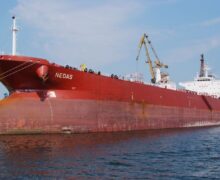
Compliance of ILO MLC 2006 & The Role Of Recruitment & Placement Services – F R Chowdhury (1st)
International Maritime Organization (IMO) ever since its creation has been adopting various internationally agreed standards for safe operation of ships with security, and prevention of pollution and protection of the marine environment. The most important instruments are SOLAS (Safety of Life at Sea), LL (Load Line), MARPOL (Prevention of Marine Pollution & Protection of Marine Environment), and STCW (Standard of Training, Certification and Watch-keeping). Since 1920, the International Labour Organization (ILO) has been also developing international instruments to protect the rights of seafarers with respect to living and social conditions, wages and period of rest etc. However, ILO instruments have been made at different times on different matters. It was difficult to enforce their compliance and as such the world community realized the need for consolidation of essential standards into one single instrument and ILO Maritime Labour Convention 2006 is the outcome of that efforts. The only ILO Convention that remains on its own outside MLC 2006 is Convention Number 185 that deals with Seafarers Identity Document adopted in 2003 and entered into force 2005. The period of rest happens to belong to both MLC 2006 as well as STCW78. This is because period of rest is vital condition of service (ILO) and without proper rest officers and ratings (especially watch-keepers) cannot perform their duties efficiently (STCW).
SOLAS-ISM and the STCW Convention defined “Company” as the entity responsible for safe operation of the ship and protection of the marine environment. Company is also responsible for resources i.e. manning. However, when drafting ILO MLC 2006 the participants realised that management companies will remain in the developed world (Glasgow, Cyprus, Hong Kong, Singapore and Hamburg) but actual recruitment will be done by their agents in the third world countries (labour supplying countries like Philippines, Indonesia, Bangladesh and Sri Lanka). Having realized this hard truth they became concerned for the protection of the rights of the seafarers so that they cannot be cheated or exploited. So in the ILO MLC 2006 they introduced RPS (Recruitment and Placement Services) who need to be licensed and controlled by the Administration where they are located.
In Bangladesh the role and responsibility of the Government Shipping Office must be recast to reflect its real functions. It cannot provide any assistance to anybody for shipment of any of any goods. Then why call it shipping office? In Bangladesh this business is totally privatized and done by the shipping agents and freight brokers. The Government Shipping Office should be rather named and called “Directorate of Seafarers’ Employment & Welfare” under the present Department of Shipping. Even this office should be called the “Department of Maritime Affairs”. All these offices should be allowed to operate on their own (to carry out the delegated functions) without constant monitoring, prompting and interference from the ministry.
In Bangladesh, the link ministry to work with ILO is the ministry of labour but because the maritime labour is very different from shore based labour industry, it requires sea-going knowledge and experience. That is why the compliance of ILO MLC 2006 should be left with the Department of Maritime Affairs under the Ministry of Shipping. MLC 2006 will soon become part of PSC (Port State Control) and should be done together with other safety and environmental matters.
Going back to RPS (Recruitment and Placement Service) should be run by private companies after being vetted and licensed by the Government. The relevant Government agency i.e. Directorate of Seafarers’ Employment and Welfare should oversee that it is done to their satisfaction. While granting licence, the Government shall attach such terms and conditions so that nobody can cheat seafarers in the name of employment and that the seafarers are never stranded abroad. No seafarer shall be made to pay for their employment. RPS shall receive their remuneration from the Company for whom they conduct the recruitment. The role of RPS is different from that of the ship’s agent. As part of the ship’s husbandry work the agents of a ship in port may receive a crew coming to join the ship or to repatriate a crew. However, RPS will mostly deal with ships that are not within the country.
Since RPS will be the only link for employment of seafarers abroad, the Government may introduce hefty fees for licensing in addition to specific bond or other guarantee for the seafarers wages, benefits, working hours, medical treatment and repatriation. In case of deprivation of our seafarer, the Government should pursue all possible means including arrest of the relevant ship abroad.
In this short and brief article, I have tried to outline the main features. However, if the Government requires further assistance, I am ready to provide my services free of cost. Just contact me.
——————————








![[নোঙর 2016] আমার সেরা বিদেশ ভ্রমন : নাফিসা মাশহুরা ইরা](http://bdmariners.org/wp-content/uploads/2016/06/Dubai-city-tour-70x70.jpg)




Recent Comments